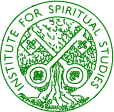|
|
|
On the 27th of April, Dr Duncan Reid gave the second seminar of 2006 for the Institute of Spiritual Studies on the Anglican and Orthodox dialogue. Dr Reid is a theologian, an officer of the Victorian Council of Churches, and at present a locum at Flemington.
Importance?
In presenting this historical overview, Dr Reid asked, "Why is it important for Anglicans to talk to the Orthodox?" He replied that it continued the long friendship between the two churches. They had structural similarities and, in the past, the Anglicans had given pastoral care and a sacramental ministry for Australian Orthodox. Furthermore, there are also many Old English, Celtic and British saints in the Orthodox calendar, such as St Helen, reputedly born in Colchester. Finally, he said, all Christians should take the Orthodox seriously, particularly becasue of the latters indigenous origins from the earliest Christian times.
Chronology
Patriarch Athenagoras and Archbishop Michael Ramsay began the dialogue when they met in 1962. There was a pan-orthodox conference in Oxford in 1964, and separate meetings between the communions from 1966 to 1972, then joint meetings from 1973 onwards, held in Western and Eastern cities. In Moscow in 1976, there was discussion of God, Scripture, an Ecumenical Council, the Creed, the Eucharist, and the Holy Spirit. In 1977, the churches discussed the ordination of women. When, in 1978, the Lambeth Conference endorsed women's ordination, the Orthodox talked of union being less likely; separate statements resulted. In 1984 there was a Dublin meeting. This year a new joint agreed statement is likely.
Dialogue
These meetings have promoted friendships in different locations, based on traditional respect, where polity with bishops and synods is shared. There has been much discussion of the ministries of women and men in the church; and the diaconate, as a stepping-stone to the priesthood as well as the permanent diaconate. At present there are Coptic, Armenian and Syrian Orthodox deaconesses. In fact, there have been women deacons in the Eastern Church since the third century, and in the Western Church since the fifth century.
Risks and Dangers
Dr Reid emphasized that one risks one's own certainties in searching for the truth. The two sides have been surprised by the degree of consensus found when the reasons for different theological and other positions were explored. While the language of theology is used in debates, one could well ask "are Anglican and Orthodox differences really just a matter of culture?" Points of difference, said Dr Reid, should not affect points of agreement, such as those concerning lay ministries, and the ministries of men and women in the diaconate. In other words, a sense of hope remains.
Heresy and Schism
Dr Reid then spent some time looking at the meaning of these two concepts. Heresy, he said, began with an individual opinion which was a departure from the faith, while schism was a departure from the Eucharistic community. For Dr Reid, individuals cannot say other individuals are heritics: this must be done by the church community. He recalled, in this context, discussions in the World Council of Churches concerning apartheid and the Dutch Reformed Church.
Reception
Dr Reid noted that people receive and re-receive the gospel. He preferred the phrase 'to receive' people's views, rather than 'missionizing' these people. He also referred to the issue of the filioque clause in relation to the workings of the Holy Spirit. The Orthodox believe that the Holy Spirit proceeds from God the Father, while Western Christians affirm that the Holy Spirit proceeds from both God the Father and God the Son. Dr Reid keenly answered questions on the differences between East and West, the creeds, the growth of Orthodox congregations in the West, and the significance of the differences in beliefs about the Holy Spirit. It was a thoroughly researched, warm, truth-seeking evening seminar.
A report from Chris Martin
Top |
Reports |
ISS Home
This site is hosted by St Peter's Eastern Hill,
Melbourne, Australia.
Content is authorized by the
Institute for Spiritual Studies
Maintained by the editor
(editor@stpeters.org.au)
|
